Agriculture & Environment
FoodLAND Project Team Holds Dissemination Meeting for Stakeholders in Wakiso District
Published
1 year agoon
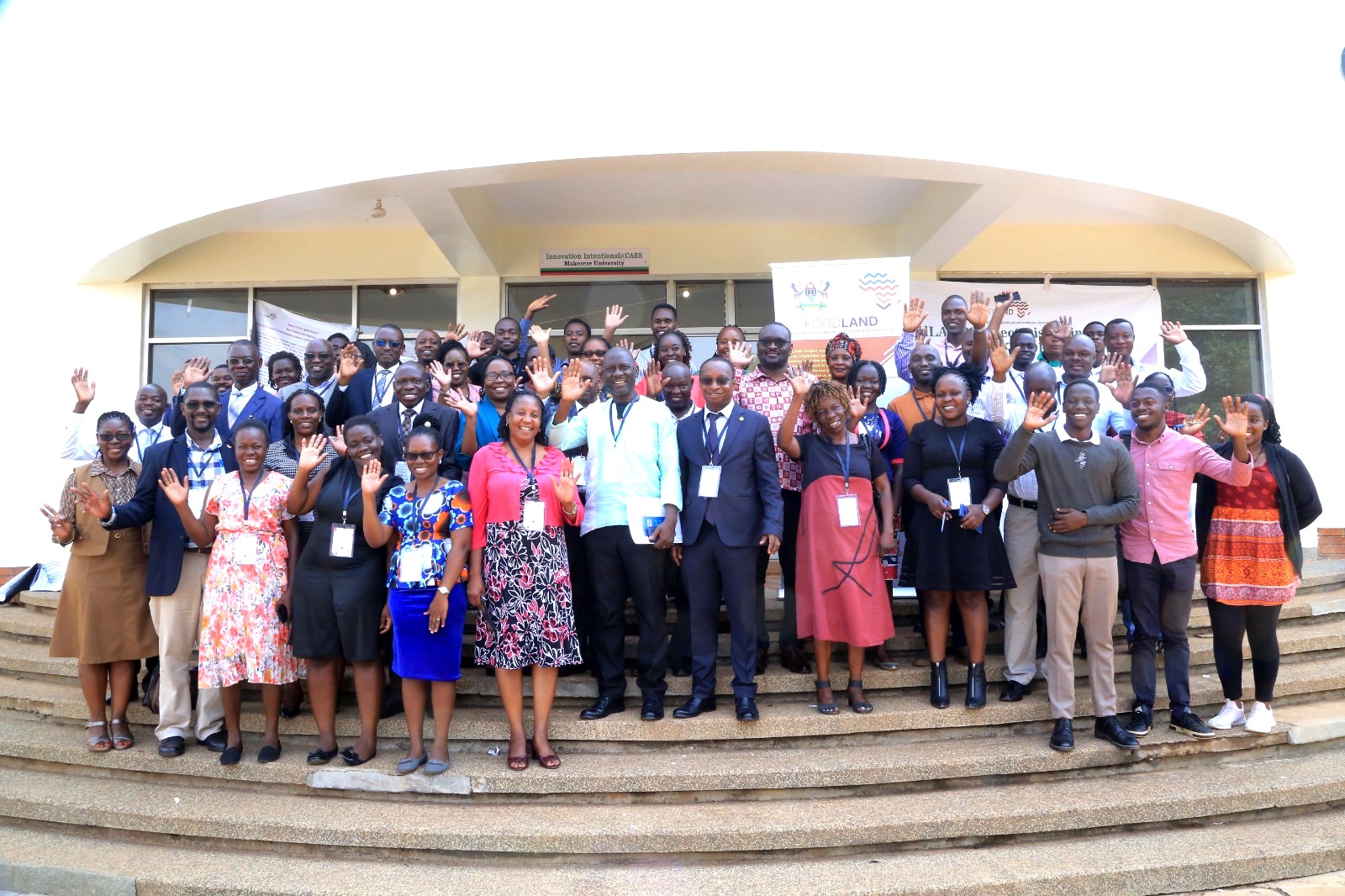
******Funded by the European Commission within the Horizon 2020 programme, the main aim of the project was to develop, implement and validate innovative, scalable, and sustainable technologies to support the nutrition performance of local food systems in Africa. Held at Makerere University, the meeting served as a platform to sensitize stakeholders on the different products developed by the project, including smart farming technologies, nutrient-rich foods, and the nutritional recommendations for adults and the elderly. The meeting featured clinical screening, and the launch of a 30-day healthy diet challenge.
Overview
Africa’s food system is dominated by a number of challenges ranging from primary and seasonal production to poor quality produce, and limited access to markets. In Africa, the use of outdated farming practices and the low adoption rate of improved agricultural technologies have contributed to low productivity. Issues such as monoculture, lack of crop rotation, and poor soil management are still prevalent across the Continent. Poor infrastructure in terms of roads, storage, and processing facilities limits access to markets and increases post-harvest losses. Moreover, many African farmers and other food systems-related businesses lack access to finance and credit facilities that would enable them to invest in improved agricultural technologies and inputs. (John Ulimwengu, FARMINGFIRST 2023).
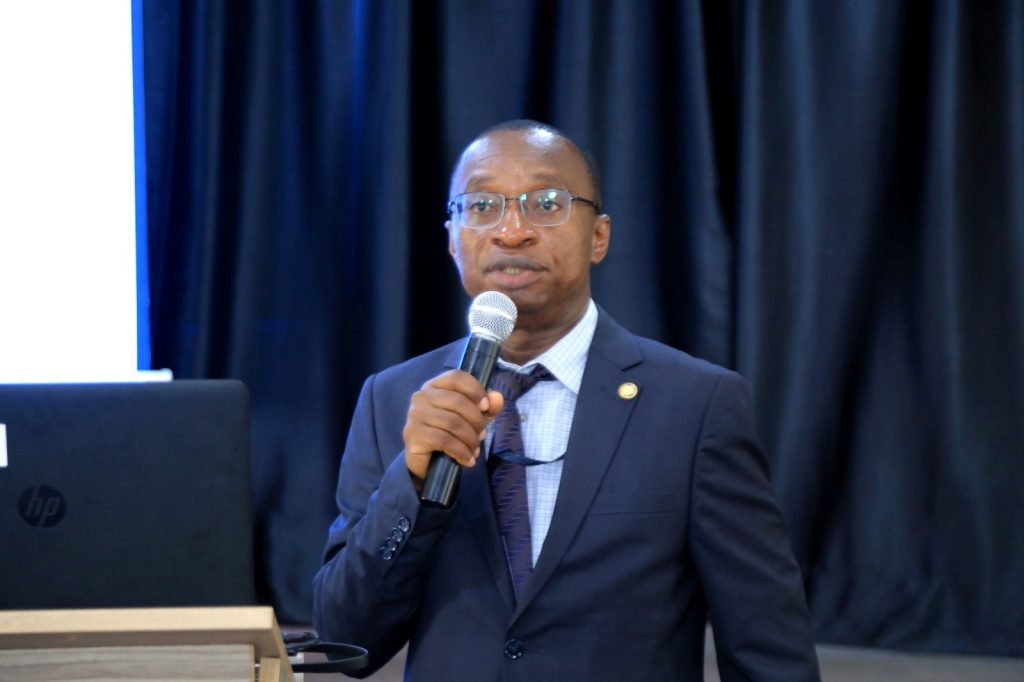
In his presentation delivered at the AU Summit in Addis Ababa in 2023, FAO Director General, Dr. QU Dongyu highlighted the need for collective effort to support vulnerable communities with multiple and innovative solutions to build their resilience and transform agri-food systems to deliver better nutrition. Dr QU Dongyu warned that 1 billion people in Africa could not afford a healthy diet in 2020, and the impacts of the climate crisis, conflicts, the pandemic, and the war in Ukraine were raising levels of malnutrition and hunger. According to a joint report on the State of Food Security and Nutrition in the World, led by FAO, 281 million people in Africa are undernourished, nearly 60 million African children under 5 suffer from stunting, and 14 million suffer from wasting.
Solutions to Challenges facing Africa’s food system
Launched in 2020 with the aim of developing, implementing and validating innovative, scalable, and sustainable technologies to support the nutrition performance of local food systems in Africa, Food and Local, Agricultural, and Nutritional Diversity (FoodLAND) Ugandan project team has come up with a number of initiatives that have tremendously transformed farming in rural communities in the country. Led by Prof. John Muyonga from the School of Food Technology, Nutrition and Bio-engineering at Makerere University, the team has developed technologies for precision irrigation and fertigation, smart storage, rodent control, and value addition. Additionally, the team has established infrastructure at Makerere University Agricultural Research Institute Kabanyolo (MUARIK) for research and training, and has trained over 100 farmers in the different technologies developed, supported the application of ecological principles to ensure sustainable agricultural production, developed nutrient enhanced food products such as noodles containing orange fleshed sweet potatoes and biofortified beans; instant flours containing orange fleshed sweet potatoes, biofortified beans and grain amaranth; and dry eggplant. The team has also developed nutritional guidelines for adults and the elderly. Uganda’s project team: Prof. John Muyonga and Prof. Johnny Mugisha from the College of Agricultural and Environmental Sciences (CAES), Makerere University; Dr. Cassius Aruho, Dr. Puline Nakyewa, Dr. Margaret Masette, Dr. Getrude Atukunda, and Dr. Justus Rutaisire from NARO; Mr. Henry Nsereko from VEDCO; and Prof. Dorothy Nakimbugwe from Nutreal.
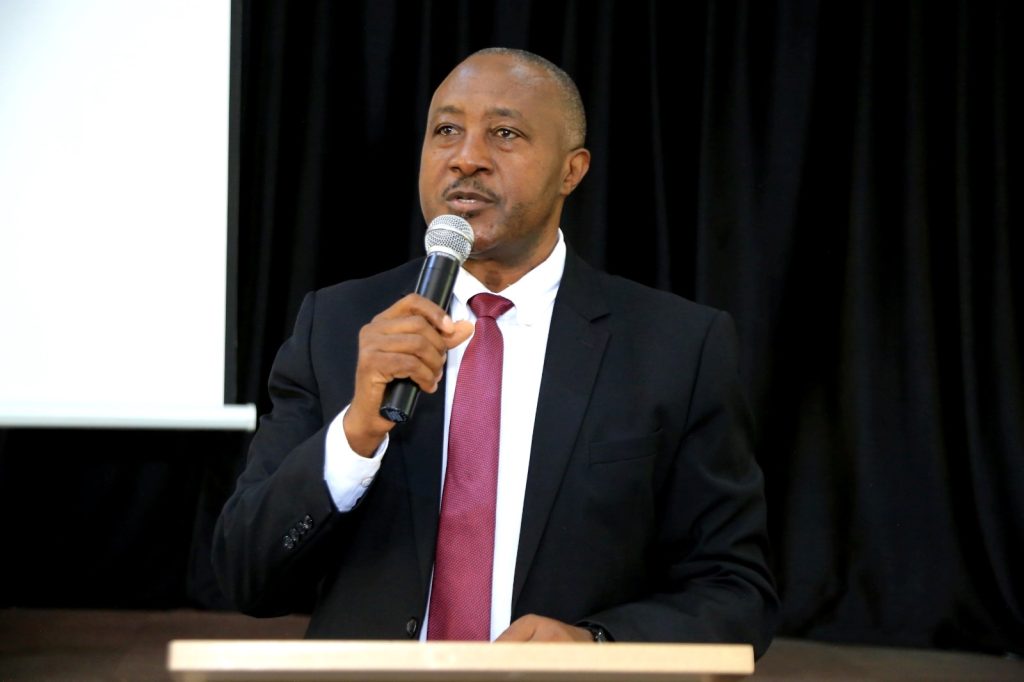
Funded to the tune of 7 million euros by the European Commission within the Horizon 2020 programme, and led by Alma Mater Studiorum – University of Bologna (Italy), FoodLAND project is committed to developing a range of innovations for local agriculture and aquaculture development, as well as to nudging consumers towards healthier eating behaviour in six African countries: Morocco, Tunisia, Ethiopia, Kenya, Uganda and Tanzania. The project specifically aims to empower smallholder farmers and food operators, foster nutrition responsive and sustainable agro-biodiversity, reinforce the productivity and resilience of food supply chains, and create new market opportunities at both the local and global scales, thereby encouraging the flourishing of rural communities. These achievements are envisaged to benefit both African and European consumers by providing them with traditional-based, healthy, nutritious foods, while encouraging the diffusion of African diets and aiding the fight against malnutrition, particularly in women and children.
Project dissemination workshops
In July 2024, the team held workshops in the project areas of Kamuli and Nakaseke districts to sensitize farmers on the research recommendations, and train them on the technologies developed to support smart farming.
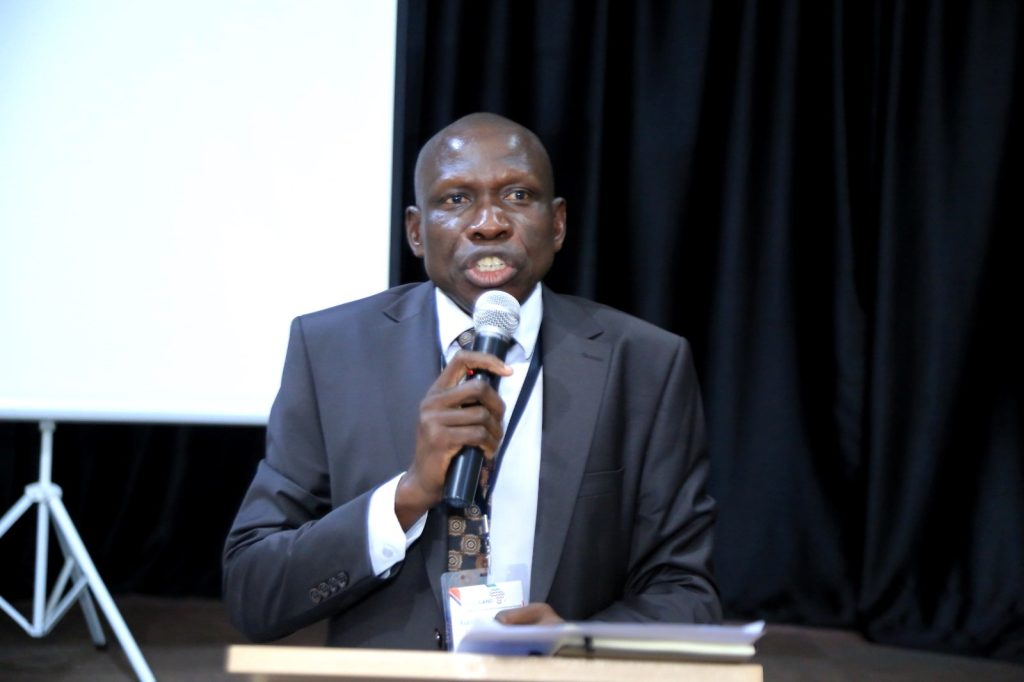
Stakeholders’ engagement/dissemination meeting in Wakiso District
On 29th August 2024, the project team held a dissemination meeting for stakeholders within Wakiso District to sensitize them on the challenges affecting Africa’s food systems, particularly Uganda, and the measures undertaken by the project to address them. Held at Makerere University and attended by staff and students, representatives from the Ministry of Agriculture, Animal Industry and Fisheries (MAAIF) and NARO, and representatives of farmer groups, the meeting discussed a number of issues including the engineering innovations for precision irrigation and fertigation, smart storage (charcoal cooling blankets to prolong shelf-life), and rodent control system developed by the research team. The meeting also discussed producer and consumer behaviours, value addition, integrated aquaculture and bio-based packaging, and nutritional recommendations to minimize under-nutrition, malnutrition, and non-communicable diseases.
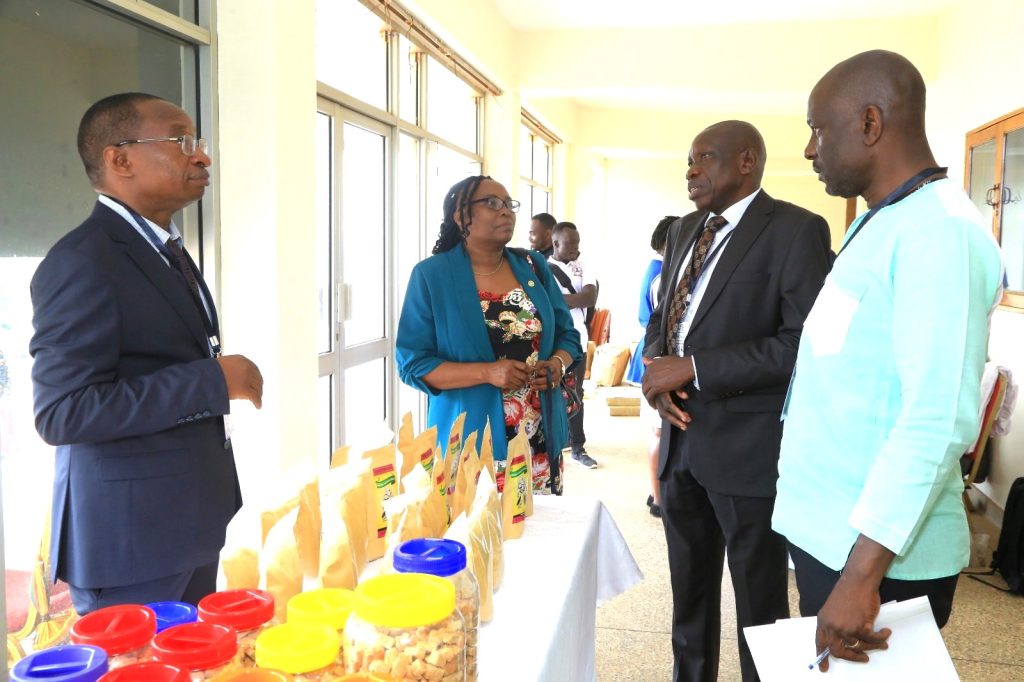
Presentations by the project team
Briefing participants on the project goal and objectives, Prof. John Muyonga, project coordinator in Uganda emphasized the need to address production and nutritional challenges along the entire value chain.
Delivering a presentation on producers and consumers’ behaviour, Prof. Johnny Mugisha noted that fear of risks was undermining uptake of innovations by the farmers. He highlighted the need for incentives to farmers to promote uptake, and called for support initiatives to reduce risks associated with long term investments such as climate change mitigation strategies. Additionally, Prof. Mugisha explained that the price of food or affordability was associated with consumer food choices, advocating for innovative models to distribute quality food to consumers at fair prices. The research also established that diets of rural women were greatly affected by their level of income, calling for initiatives to improve women’s income, and sensitization on good nutrition.
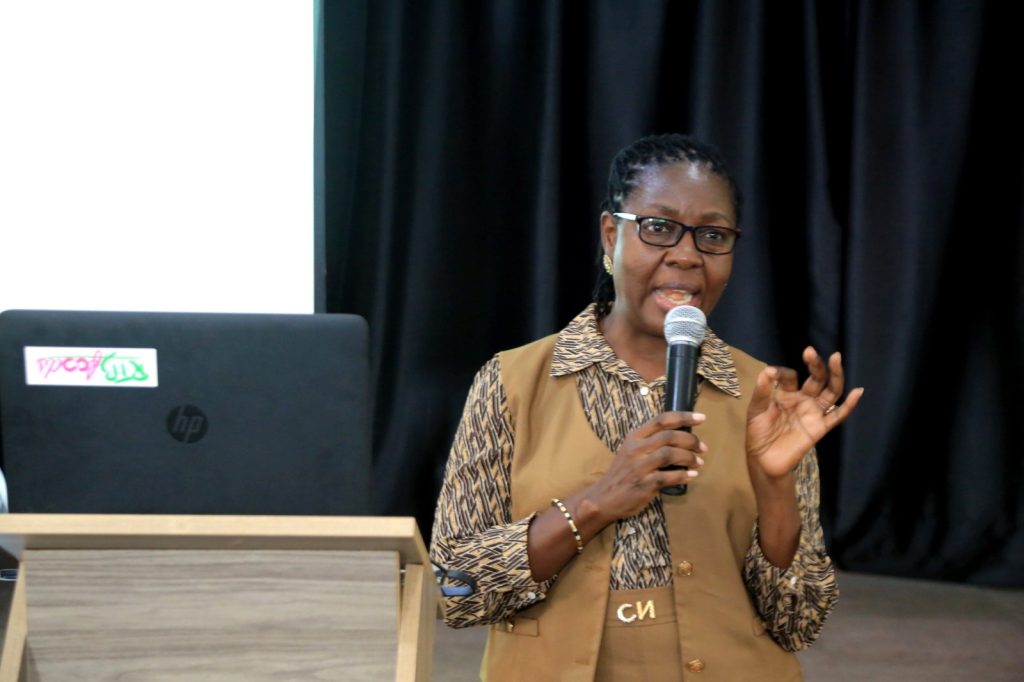
On behalf of Nutreal Ltd that led the value addition component on the project, Dr Dorothy Nakimbugwe, from the Department of Food Technology and Nutrition, College of Agricultural and Environmental Sciences (CAES), Makerere University, presented to participants the different nutrient-rich products developed. These include; orange fleshed sweet potato, bio-fortified beans, noodles, composite flours, and snacks/daddies. According to Dr Nakimbugwe, food processing improves nutrition and health and reduces post-harvest losses. “Consumption of the nutrient-enhanced foods contributes to higher dietary intake of key nutrients (protein and micronutrients e.g. iron and zinc), and can greatly reduce malnutrition. Reports from UNICEF indicate that malnutrition poses a significant barrier to the achievement of the Sustainable Development Goals (SDGs), affecting not only health but also education, economic prosperity, and societal well-being. In sub-Saharan Africa, over 30% of children under the age of five suffer from stunted growth due to chronic malnutrition. Uganda’s adult population also faces a malnutrition burden. In adults, under-nutrition and nutritional deficiencies lead to low productivity, poor health, and poor pregnancy outcomes.
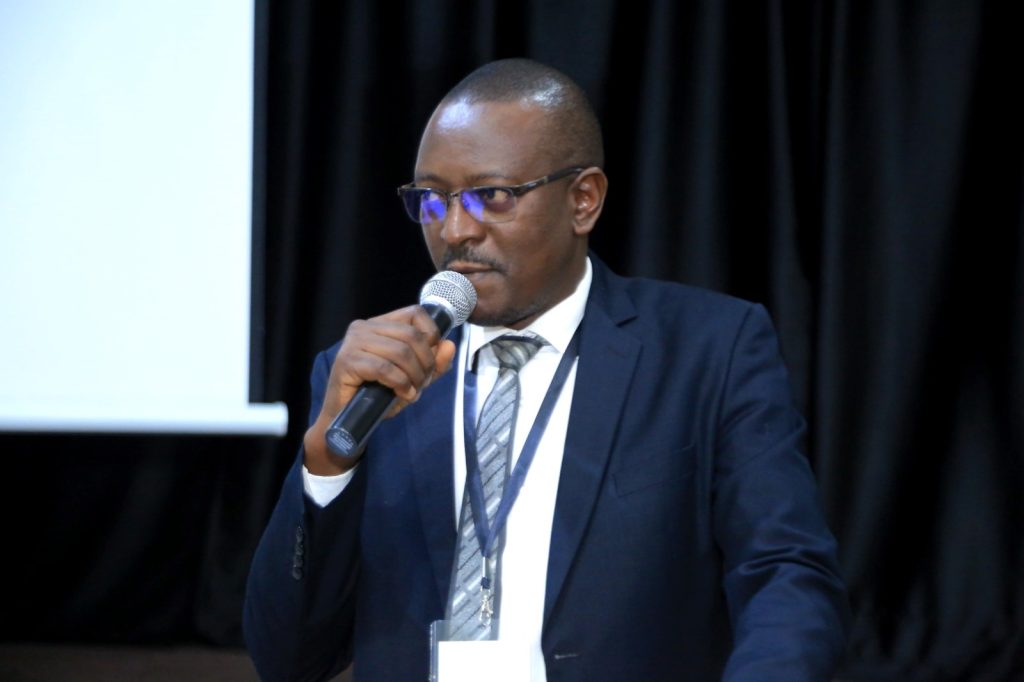
Presenting the nutritional recommendations, Dr Richard Bukenya from the Department of Food Technology and Nutrition at Makerere University indicated that the causes of malnutrition were largely behavioural. According to the Global Nutrition Report of 2022, Uganda has shown limited progress towards achieving the diet-related non-communicable disease (NCD) targets. 10.4% of adult (aged 18 years and over) women and 2.3% of adult men are living with obesity. Uganda’s obesity prevalence is lower than the regional average of 20.8% for women and 9.2% for men. At the same time, diabetes is estimated to affect 5.6% of adult women and 5.6% of adult men. The 2018 Non-Communicable Diseases (NCD) survey by the World Health Organization (WHO), also indicates an increase of diet related health conditions including obesity, diabetes, Cardio Vascular Disease, Coronary Heart Disease, and Cancer with up to 33% of deaths in Uganda related to these non-communicable diseases. The FoodLAND project has worked to supplement efforts by Government to reduce malnutrition. Following desk reviews and stakeholder engagements, the project developed 30 nutritional recommendations for adults and the elderly. These include; i) Daily consumption of locally available fruits and vegetables, whole starchy staples, and protein-rich foods including beans, peas, nuts, fish, eggs, and meat; ii) Limiting the consumption of fried foods, salt, alcohol, and sweetened beverages; iii) Hydrate with fluids, preferably water; iv) Regular engagement in moderate-intensity physical activity like brisk walking, digging, swimming, aerobics, and cycling; v) Undertaking medical examination at intervals of no longer than 6 months to facilitate timely detection and treatment of ailments like diabetes, hypertension, high plasma cholesterol and cancers.
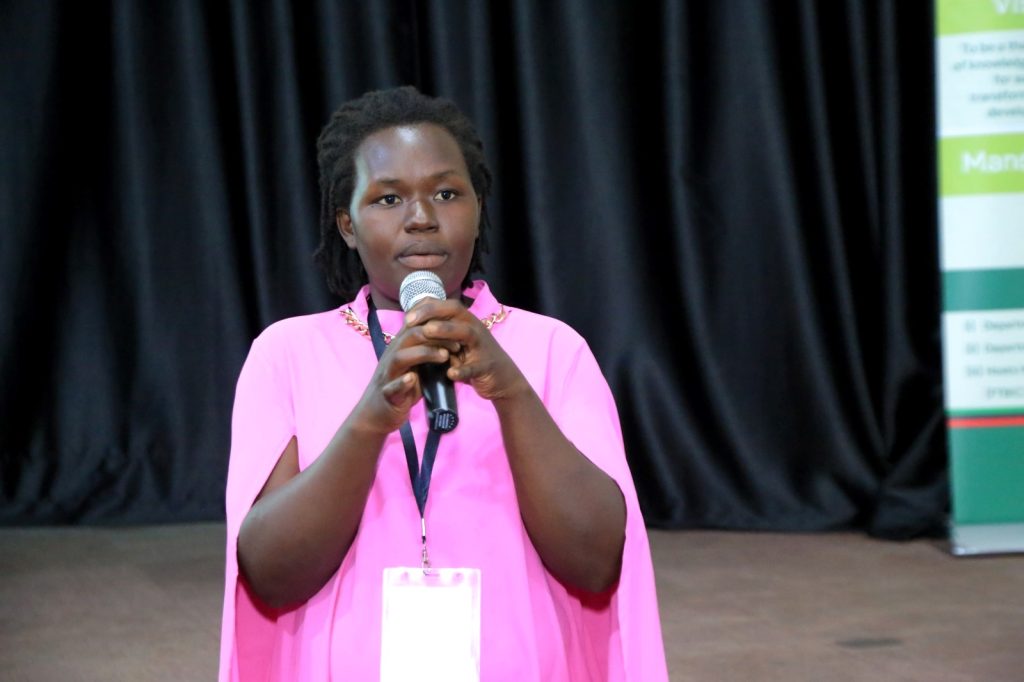
Remarks by the Vice Chancellor
On behalf of the Vice Chancellor of Makerere University, the Deputy Director, Directorate of Research and Graduate Training, Prof. Julius Kikooma commended the project team for the initiative. “The research focus of the FoodLAND project is extremely important, especially for us as a country that is highly reliant on agriculture and yet faced with malnutrition, poor market access from agricultural products and the challenge of climate change. While Africa has potential to grow diversity of food, the continent suffers high levels of under-nutrition, nutritional deficiencies, food poisoning and has in recent decades also registered marked rise in prevalence of over-nutrition and associated non-communicable diseases,” he noted. He commended the project for being in line with the University’s 2020-2030 strategic plan, which seek, among others, to strengthen generation and uptake of knowledge and technologies that contribute to socio-economic transformation of people in Uganda and beyond. He appreciated the European Commission for the support extended to the project.
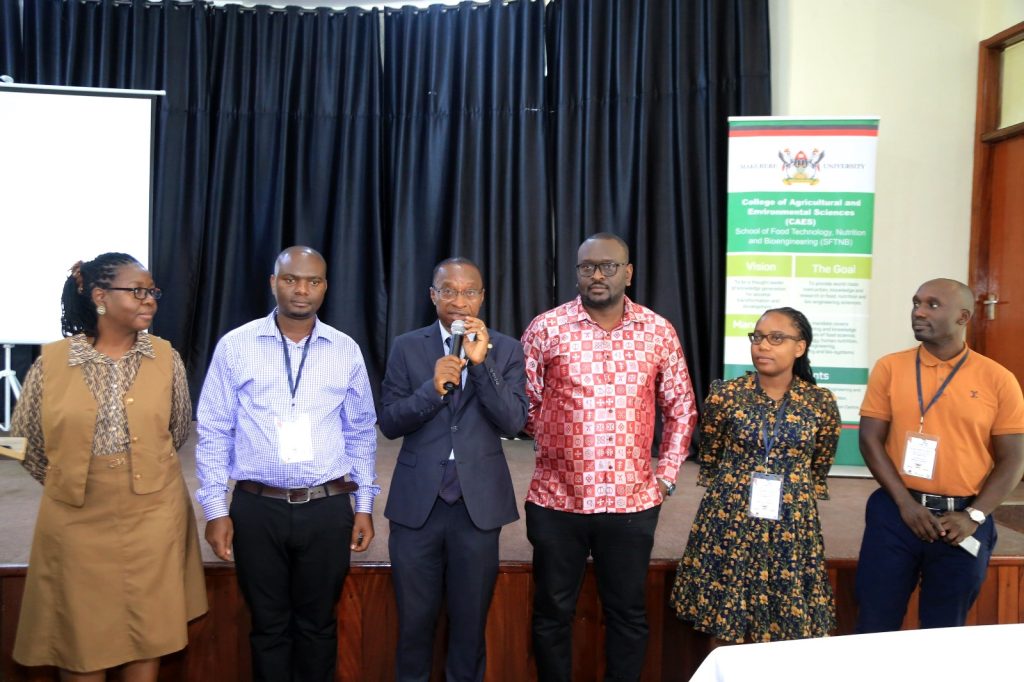
MAAIF Representative
In his address, Mr. Steven Byantware, MAAIF Director for Crop Resources, who represented the Minister of Agriculture, Animal Industry, and Fisheries (MAAIF) appreciated the project team for supporting government programmes intended to foster agro-industrialization and mechanisation of agriculture with the aim of transforming the country from subsistence to commercial farming. He urged the team to popularise the research findings through extensive dissemination programmes.
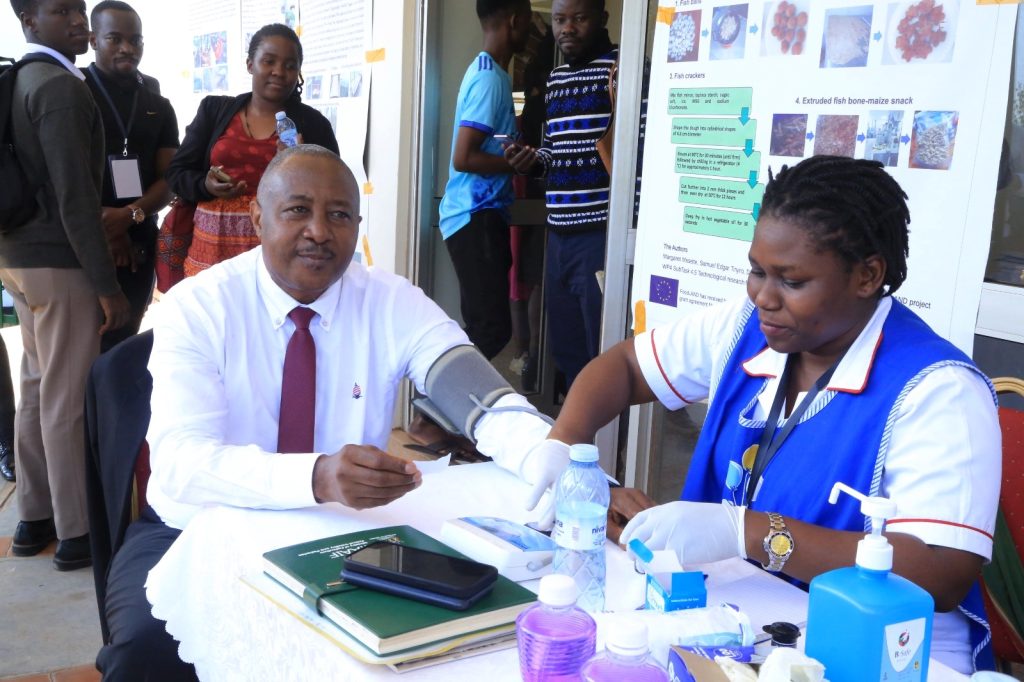
Director General – NARO
On behalf of the Director General of NARO, Dr. Sadik Kassim, Deputy Director General commended the partnership between Makerere and the organization. Highlighting the challenges posed by climate change and mechanization of agriculture, Dr. Kassim said the project is crucial in promoting agro-bio-diversity and nutrition bio-diversity. Regarding uptake and sustainability, he urged the project team to work with the government and private sector to strengthen the innovations. He equally appreciated the European Commission for funding the project.
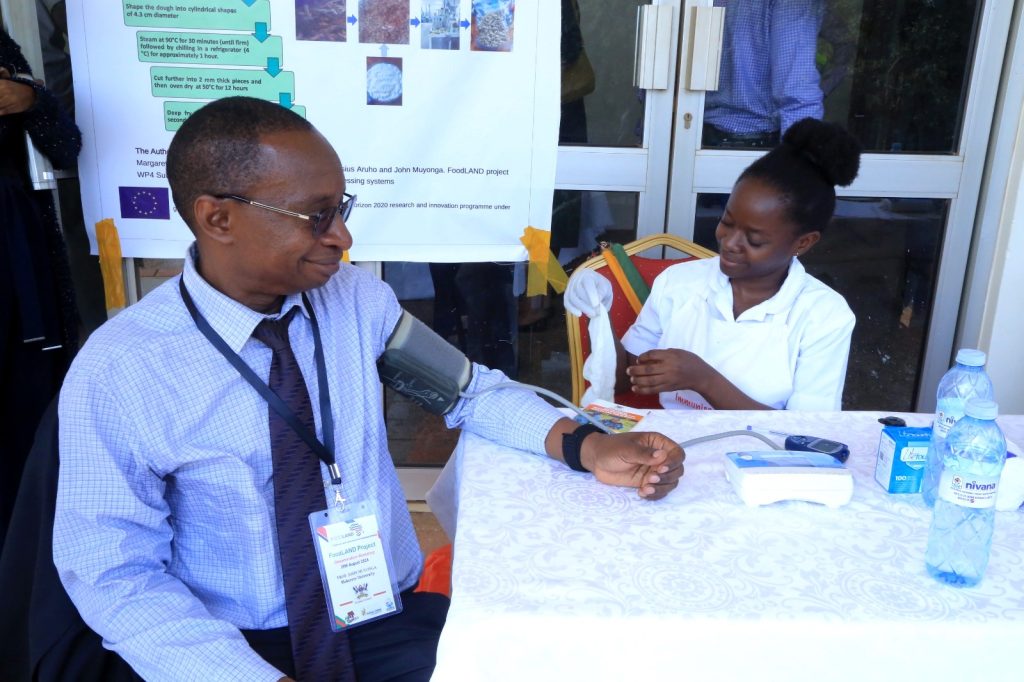
In her remarks, the Dean, School of Food Technology, Nutrition and Bio-engineering, Dr Julia Kigozi commended the project team for the initiative, saying it promotes the CAES innovation-intentional agenda.
The meeting featured testimonies by some of the farmers supported by the project who expressed gratitude, noting that their livelihoods had greatly transformed following the application of the knowledge acquired from the project.
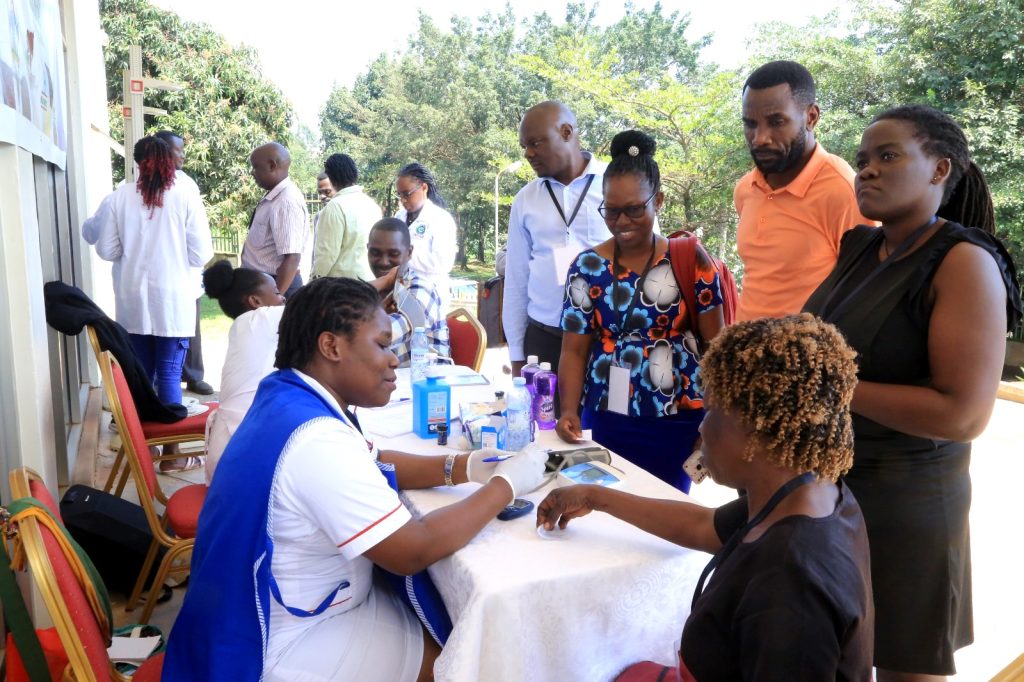
Exhibition, clinical screening, and launch of a 30-day healthy diet challenge
On the side-lines of the dissemination meeting was an exhibition of the different products developed by the project team, and clinical screening as well as launch of a 30-day healthy diet challenge.
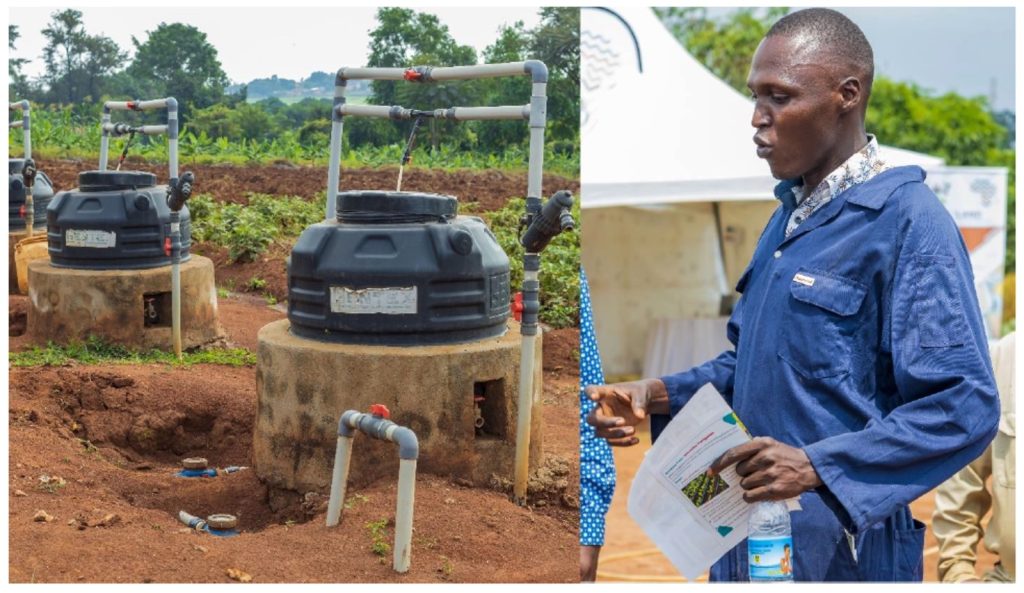
More about the project;
You may like
-


Makerere Launches Scholarly Guide, Calls for Increased Research, Publication and Innovation in Africa
-
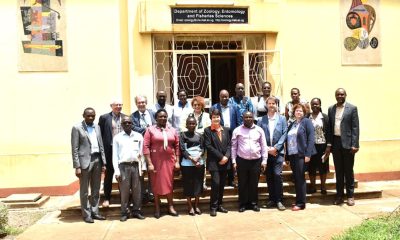

BOKU University Charts New Collaboration Strategies with Mak’s Department of Zoology, Entomology & Fisheries Sciences
-


When Birth Becomes the Most Dangerous Moment, Wanduru & the Work of Making Labour Safer
-
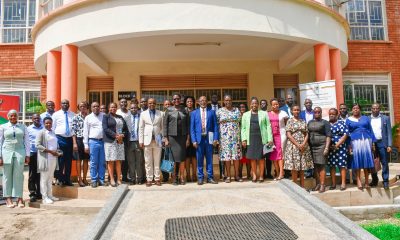

VC Opens Training for MoKCC Officials on Safeguards in Procurement
-
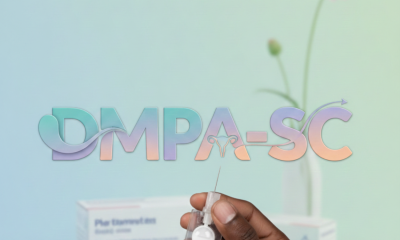

Study Alert: Power in Her Hands; Why Self-Injectable Contraception May Be a Game Changer for Women’s Agency in Uganda
-
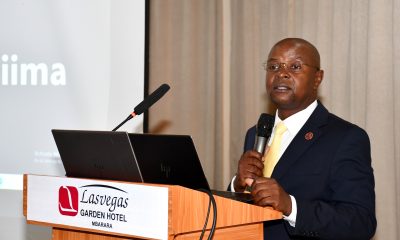

Building Skills for Better Public Investments: PIM Centre Trains Public Sector Economists
Agriculture & Environment
From Adversity to Excellence: The Inspiring Journey of Makerere’s Best Science Student, Esther Ziribaggwa
Published
1 week agoon
February 6, 2026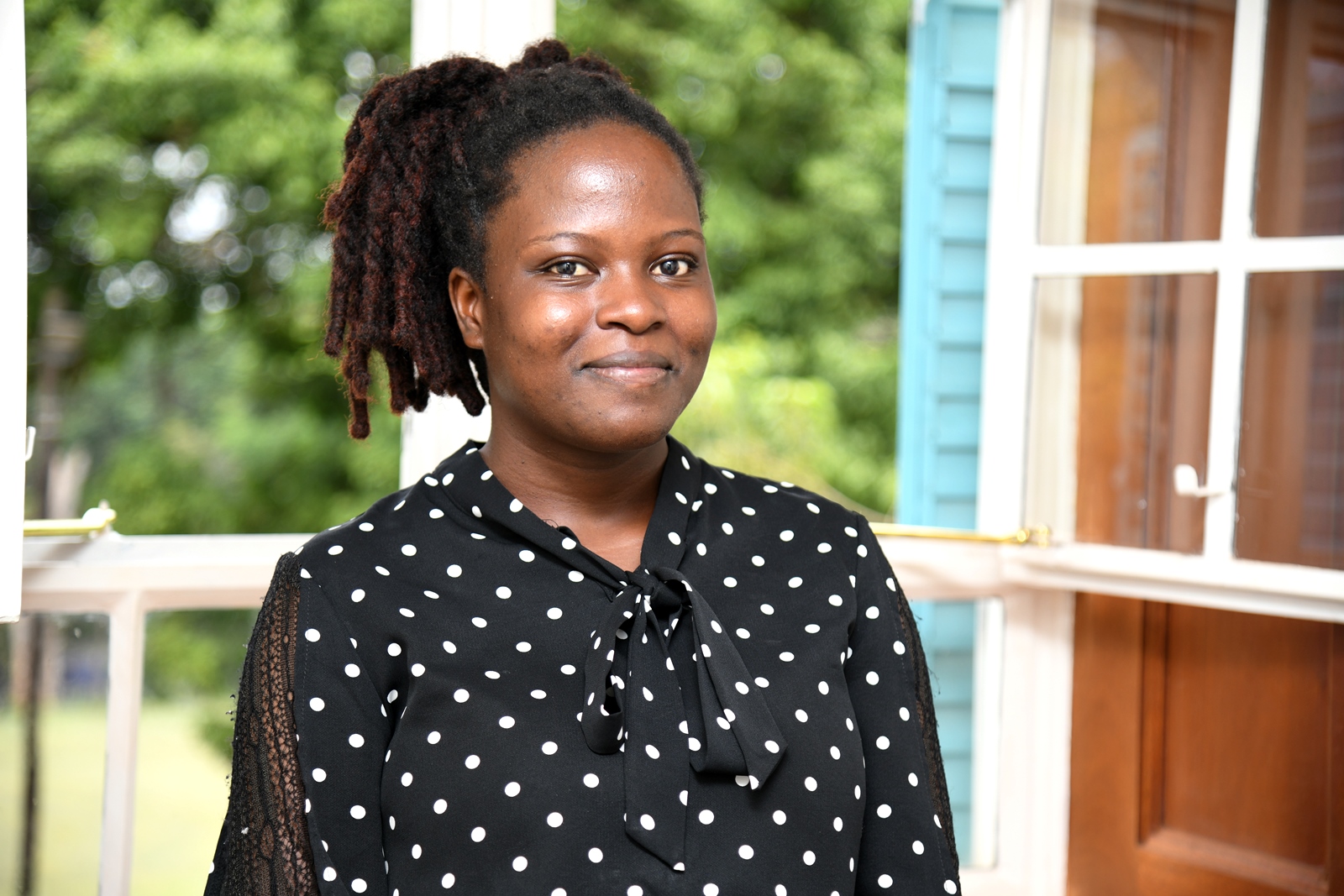
Growing up in Nkonge Village, Kyampisi Sub County in Mukono District, Esther Ziribaggwa learned early the meaning of resilience.
Born to Mr. Musisi Godfrey, a farmer, and Ms. Babirye Resty, a market vendor in Seeta, Mukono District, her journey from humble beginnings to becoming Makerere University’s top-performing student in the Sciences is a testament to her determination, hard work, and unwavering faith. She attained a CGPA of 4.77 in the Bachelor of Agricultural and Rural Innovation, a programme taught at the College of Agricultural and Environmental Sciences (CAES). She will be graduating from Makerere University on 24th February 2026, the first day of the 76th graduation ceremony.
Educational Journey and Navigating the Financial Hurdles to remain in School
Ziribaggwa’s journey to academic excellence has not been smooth. But her parents’ sacrifices laid the foundation for her dreams, even as life presented relentless challenges.
She began her education at Frobel Day and Boarding Primary School and later joined Seeta Boarding Primary School, where she excelled with 9 aggregates in her Primary Leaving Examinations. However, the transition to secondary school presented challenges that tested her resolve.
She joined Mpoma Royal College in Mukono District alongside her sister, who had scored 12 aggregates. Shortly after starting Senior One, their father fell seriously ill, requiring an intestinal surgery, and could not continue to work. With the family unable to pay school fees, both sisters dropped out for a year. It was only through the compassion of the school bursar and the then Head Teacher, Ms. Namazzi Connie, who reduced their fees from 800,000 to 380,000 Uganda Shillings, that Ziribaggwa and her sister were able to return. “The year out of school was a huge setback,” she recalls, “but I focused on catching up. I knew I couldn’t waste this second chance.” Her perseverance paid off. Despite the lost year, she completed her O’ Level with 25 aggregates in eight subjects.
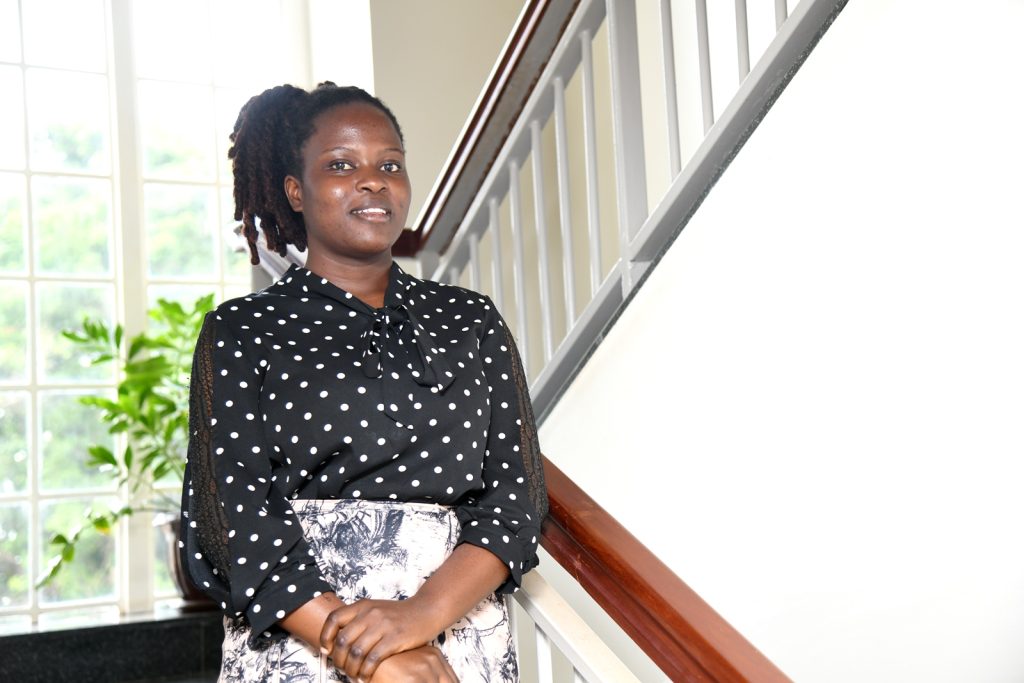
Her A’ Level years were marked by similar challenges. Due to financial constraints, Ziribaggwa attended three different schools. She initially enrolled at Seat of Wisdom Boarding School in Kayunga but was forced to leave when her family could no longer afford the fees. At the time, her father, the family’s sole breadwinner, had undergone a second operation and was unable to work. Her mother, a market vendor, stepped in to support her education and transferred her to Paul Mukasa Day and Boarding Secondary School in Mukono District as a day student. However, the long daily commute was exhausting, leading to a final transfer to Godmark High School in Mukono District where she completed her A’ Level in 2019 with 15 points in Geography, Economics, Agriculture, and Subsidiary Mathematics.
After completing secondary school, Ziribaggwa waited two years before joining university due to financial constraints. Although she had been admitted under the private sponsorship scheme to pursue a Bachelor of Statistics, she was unable to raise the required tuition. Following the outbreak of COVID-19 and the subsequent lockdown, an opportunity arose for her to obtain government sponsorship. At the time, there were no Senior Six leavers, prompting Makerere University to invite applications from candidates who had completed Senior Six within a specified period. The cut-off points across programmes were lowered, enabling her to secure government sponsorship to pursue a Bachelor of Agricultural and Rural Innovation.
Appreciation
She is deeply grateful to the Almighty, her parents, and everyone who supported her educational journey. She is specifically thankful to the Government of Uganda for sponsoring her university education, and to Ms. Namazzi Connie, her O-Level Head Teacher, for subsidizing her school fees. She is also grateful to all her lecturers at CAES and Jesus is King Ministry under the Makerere University Christian Union.
Message of Resilience to Fellow Students
To the students navigating similar challenges, Ziribaggwa shares a message of encouragement. “Never let your situation break you. There’s always going to be challenges, sometimes pushing you to what feels like a point of no return. But those moments should not define your future – they are a test of your resilience. Strive to outgrow them and become a better person, even when the journey feels impossible.”
Career and Aspirations
Ziribaggwa currently works in the extension division of Slow Food Uganda, an agricultural organization based in Mukono District, where her work focuses on women and youth. Although her dream was to become a medical doctor, her love for agriculture has grown over time and does not regret taking on this path. She aspires to become a Senior Agricultural Officer in the country, with the goal of improving farming conditions, particularly in the rural communities. Growing up in a farming community exposed her to many challenges faced by farmers, including unpredictable weather conditions that necessitate irrigation support, and improper use of agrochemical inputs, which pose risks to both soil quality and human health.
Ziribaggwa hopes to pursue further studies in crop and soil science. She draws inspiration from exemplary leaders like Hon. Rebecca Kadaga, former Speaker of the Parliament of Uganda, and First Deputy Prime Minister and Minister for East African Community Affairs. “I have always admired her for being hardworking, resilient, and eloquent,” she says, seeking to emulate these qualities in her own journey.
Agriculture & Environment
Call for Applications: QCF Postdoctoral Research Fellowships
Published
4 weeks agoon
January 20, 2026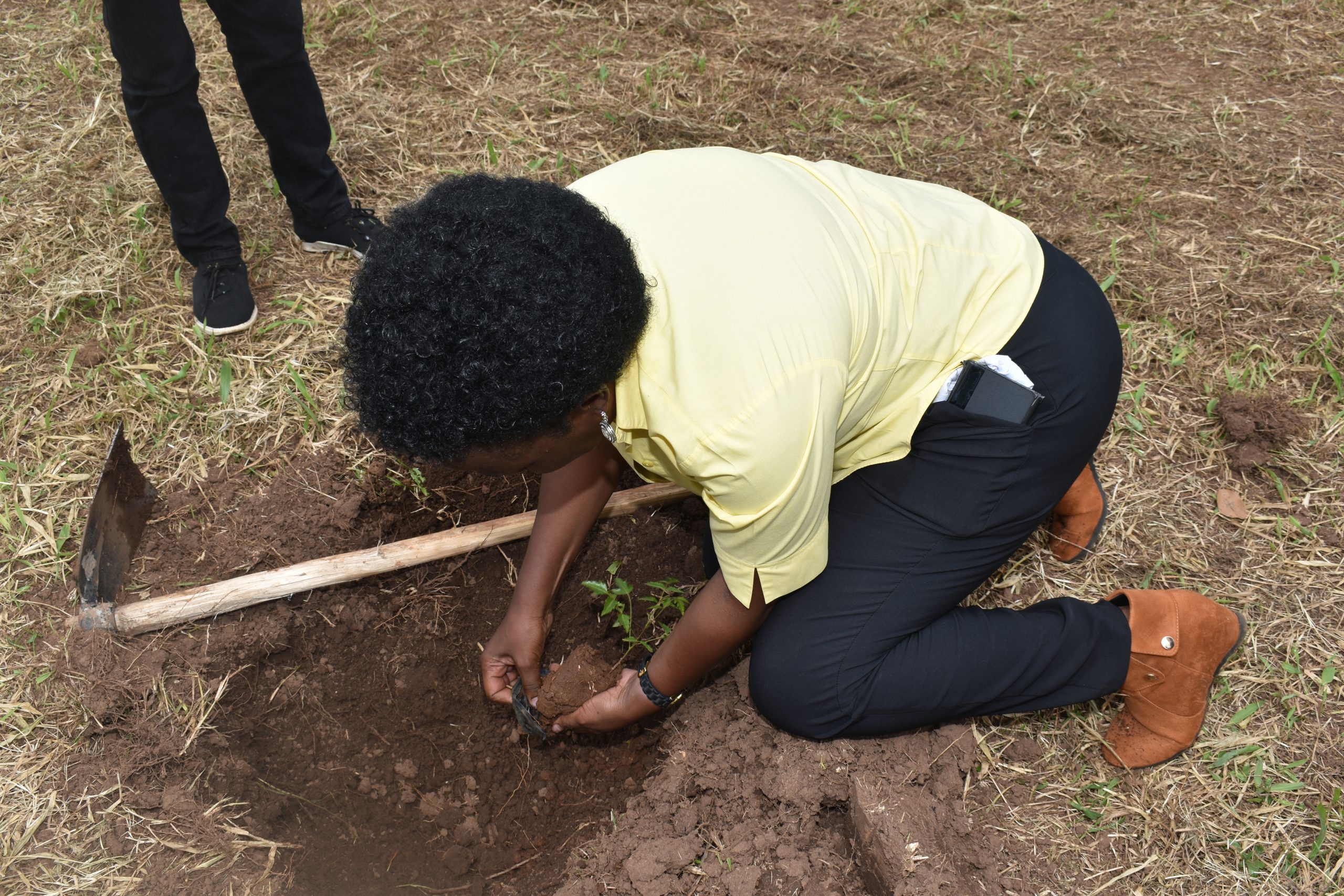
Makerere University’s Department of Geography, Geo-informatics and Climatic Sciences in partnership with Quadrature Climate Foundation and Red Cross Red Crescent Climate Centre are seeking two fellows for Quadrature Climate Foundation (QCF) Fellowship Programme. This is a two-year post-doctoral programme fully funded by QCF, which is an independent charitable foundation working for a greener and fairer future. Applications for the two-year post-doctoral fellowship are invited from individuals with demonstrated interest and expertise in locally led adaptation to climate change research. This initiative is a unique and excellent opportunity to expand the network of interested individuals with researchers and decision-makers, as well as deliver action-oriented research to inform policy and practice. Depending on their interest, each applicant should choose one of the two thematic areas offered under the fellowship program:
- Knowledge co-creation for locally led adaptation to climate change
- Decentralised decision making for effective climate change adaptation and resilience
The Fellow working on the Thematic Area 1: knowledge co-creation for locally adaptation will explore collaborative learning processes (including informal learning) for climate change adaptation among smallholder farmers with focus on Uganda, with linkages to related work in Bangladesh, Mozambique and Nepal. The overall intention is to generate understanding of how decision making processes, across scales, can be linked to local and context specific knowledge systems and process for epistemic just adaptation. The key research questions are:
- What does the process of co-creating knowledge for locally led climate change adaptation look like in a rural smallholder farming setting of a Least Developed Country (LDC)?
- What are the possibilities, promises and pitfalls of knowledge co-creation for locally led adaptation planning?
The research will intentionally contribute to methodological and practice advances in co-creation of knowledge for locally led climate change adaptation.
The research on Thematic Area 2: decentralised decision making for effective adaptation and resilience will undertake scientific interrogation of a climate finance mechanism that has been designed for locally led adaptation and resilience in Uganda. The Fellow will largely focus on testing selected assumptions behind the design of the mechanism. The key questions are:
- How does effective locally led climate change adaptation and resilience building investment decision making look like in practice?
- What works and how does it work? What does not work and why?
Key considerations in the research will include local leadership, inclusion, context specificity, cross-scale, and capability strengthening. The targeted contributions of the fellowship include improved knowledge management for climate resilience planning and decision-making, strengthened evidence-based research-policy-practice dialogues, framework(s) for integrating local and experiential knowledges in resilience building investment decision making processes, among others.
The Fellows will be based, full-time, at Makerere University, Kampala as a core member of the team working on locally led adaptation and resilience. Their work will be conducted under the auspices of the Least Developed Countries Universities Consortium on Climate Change (LUCCC) through which Makerere University is engaged in research and knowledge management collaborations. The Fellowships will focus on Uganda, but with deliberate linkages across LDCs, which might necessitate travels for in-person working meetings.
Roles and responsibilities of the Postdoctoral Research Fellow
The Fellow will be highly motivated to work with a transdisciplinary research team, grow their research expertise, engage with climate change researchers, decision-makers, practitioners and generate different categories of publications. Makerere University will appoint a locally based mentor to the Fellow to provide professional development support. Where needed, the Fellow will participate in teaching and community outreach activities including knowledge sharing in ways that foster collaborative research for adaptation policy and practice.
Requirements:
- A PhD, awarded within the previous three years, in a related discipline (e.g., geography, climate and society, sustainability, adaptation governance, epistemic justice, climate finance).
- Knowledge and experience of locally led adaptation in the agriculture sector.
- Experience in synthesizing and managing datasets and literature.
- Experience in, and knowledgeable of, participatory and collaborative action-oriented research methodologies and tools.
- Demonstrated ability to produce research information products for different audiences.
- Excellent written and verbal communication skills in English
- Demonstrated interest and experience in transdisciplinary collaborations across-scales including with local communities, decision-makers and practitioners in LDCs
- Experience in giving international oral presentations and interest in public communication for wide-ranging categories of audiences
- Data and information visualisation skills will be an added advantage
Application requirements:
Applicants should submit a single PDF with: (i) an application letter not longer than 2 pages that includes indication of theme of interest, a description of research interests, research expertise, and an explanation of how they can work as part of the transdisciplinary research team in line with the fellowship objectives described above; (ii) a CV including a publication list; (iii) copies of academic transcripts and/or certificates; (iv) an example of written work; (v) email addresses of two references who have been directly involved in their PhD research.
Applicants must submit the PDF application document to colocal.caes@mak.ac.ug. Please type “LUCCC PDR Application: COLOCAL-Makerere” as the subject line of the email.
Closing date
Midnight (GMT+3) on 27th February, 2026 or until the position is filled.
Selection process
Eligible and complete applications will be considered followed by communication with short-listed applicants. Makerere University, in consultation with Quadrature Climate Foundation and the Red Cross Red Crescent Climate Centre, will conduct interviews of the short-listed applicants.
If you have not heard from Makerere University within two months of the deadline, please assume your application has been unsuccessful.
Contact details for enquiries about this post-doc fellowship: colocal.caes@mak.ac.ug
Makerere University reserves the right to
- Disqualify ineligible, incomplete and/or inappropriate applications;
- Change the conditions of the award or to make no awards at all
-The QCF Fellowship Programme is a two-year, post-doctoral programme fully funded by Quadrature Climate Foundation (QCF).
-Quadrature Climate Foundation is an independent charitable foundation working for a greener and fairer future. For more information on QCF, please visit qc.foundation.
Agriculture & Environment
Mak-CAES Trains Small-Scale Processors on Soybean Value Addition & Product Development
Published
2 months agoon
December 16, 2025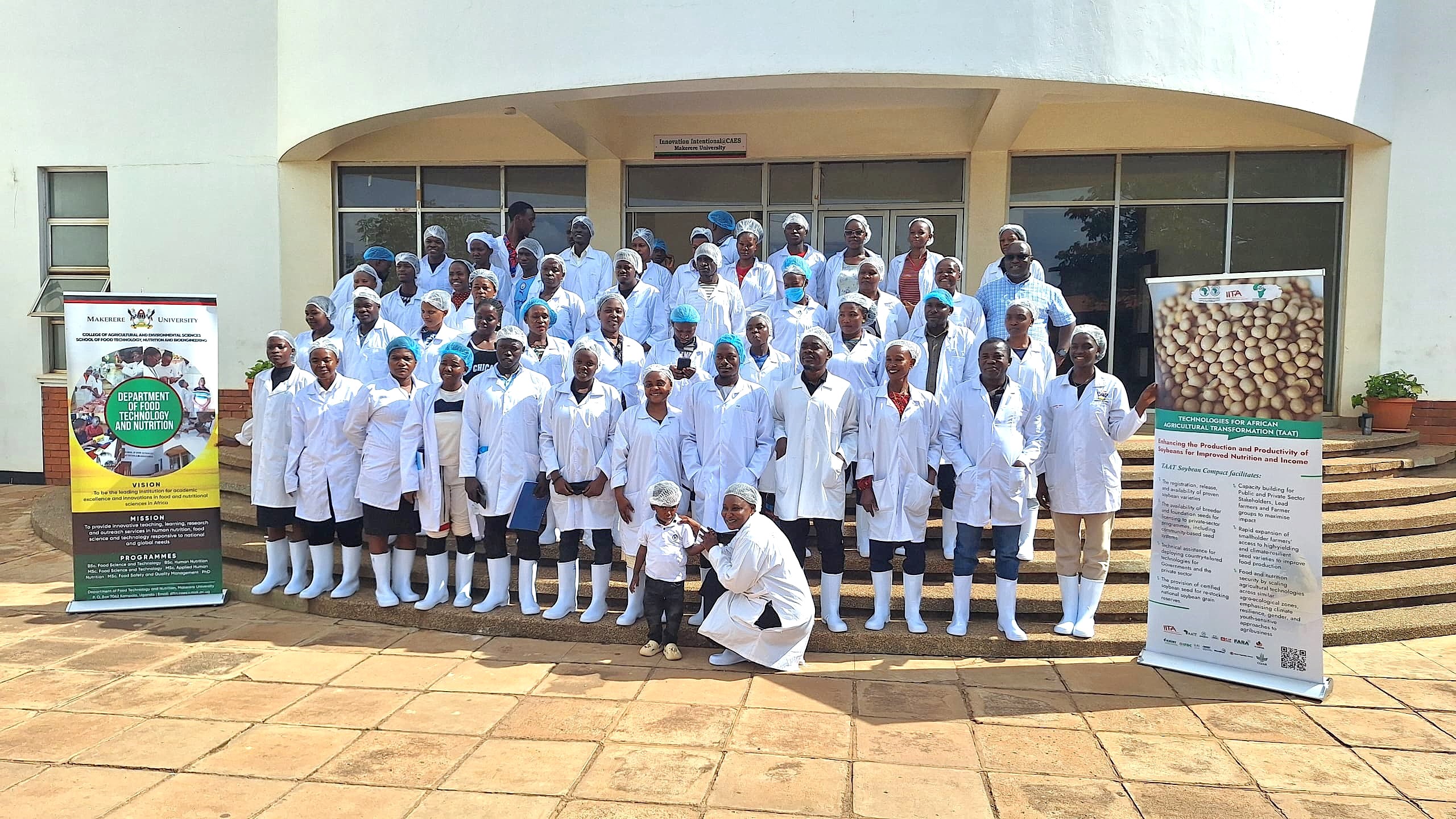
The Department of Food Technology and Nutrition (DFTN), Makerere University, in collaboration with Smart Foods Uganda Ltd, successfully conducted a five-day intensive training on soybean value addition and product development from 24th to 28th November 2025. The training was implemented with support from IITA Uganda under the Training for African Agricultural Transformation (TAAT) Soy Compact Project, aimed at strengthening agro-processing capacities and promoting soybean utilization for improved nutrition and livelihoods.
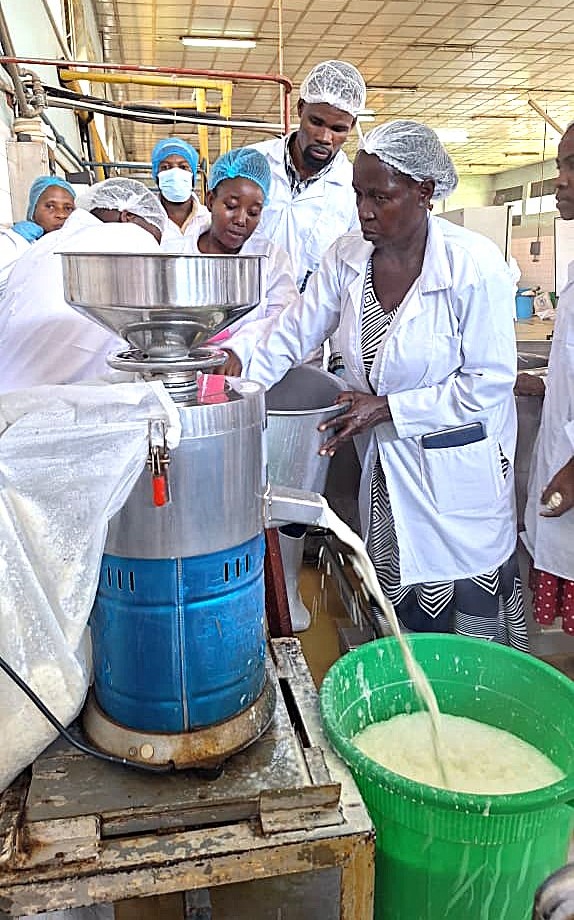
The training program was highly practical and skills-oriented, featuring extensive hands-on sessions designed to equip participants with applicable processing and product development competencies. Most of the practical activities were hosted at Makerere University’s Food Technology and Business Incubation Centre (FTBIC). Participants also benefited from an industry exposure and experiential learning session at Smart Foods Uganda Ltd in Bweyogerere, where they gained first-hand insights into commercial-scale soybean processing operations, quality control systems, and product marketing strategies.

Key thematic areas and technologies covered during the training included soybean nutrition and associated health benefits; assessment of quality attributes of soybeans and soy-based products; application of Good Hygiene Practices (GHP) and Good Manufacturing Practices (GMP); and processing of high-quality soy products. Practical sessions focused on the production of soymilk, tofu, soy yoghurt, soy flour, and soy coffee, as well as the formulation of soy-fortified composite porridge flours. Participants were also trained in the development of various soy-based bakery products, including bread, mandazi, daddies, and baghia. In addition, sessions on marketing, branding and positioning of soy products, as well as UNBS certification requirements and documentation, were conducted to enhance market readiness and regulatory compliance.
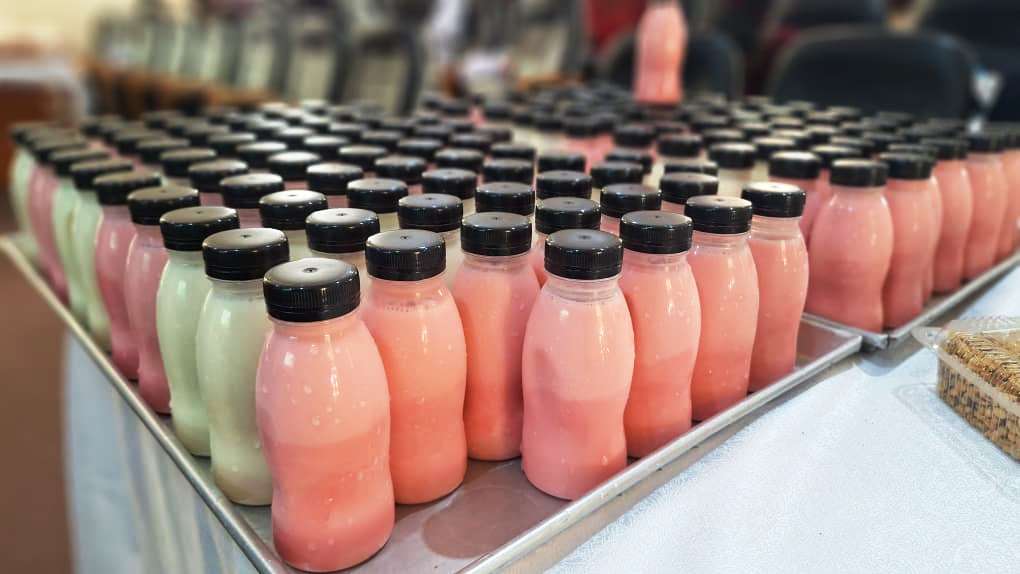
The training attracted a total of 57 participants, comprising small-scale soybean processors and graduating university students, thereby fostering knowledge exchange between academia and industry. Overall, the training contributed significantly to building technical capacity in soybean value addition, promoting entrepreneurship, and supporting the development of nutritious, market-oriented soy-based products in Uganda. The School of Food Technology, Nutrition, and Bioengineering, under the leadership of Dr. Julia Kigozi (Dean), conducts periodical trainings for agro-processors across the country to enhance technical capacity, improve product quality, and promote the adoption of modern, safe, and sustainable food processing practices. These trainings are designed to equip agro-processors with practical skills in food safety, quality assurance, value addition, post-harvest handling, nutrition, and bioengineering innovations, thereby enabling them to meet national and international standards. Through this outreach, the School contributes to strengthening agro-industrial development, reducing post-harvest losses, supporting entrepreneurship, and improving food and nutrition security while fostering stronger linkages between academia, industry, and communities.
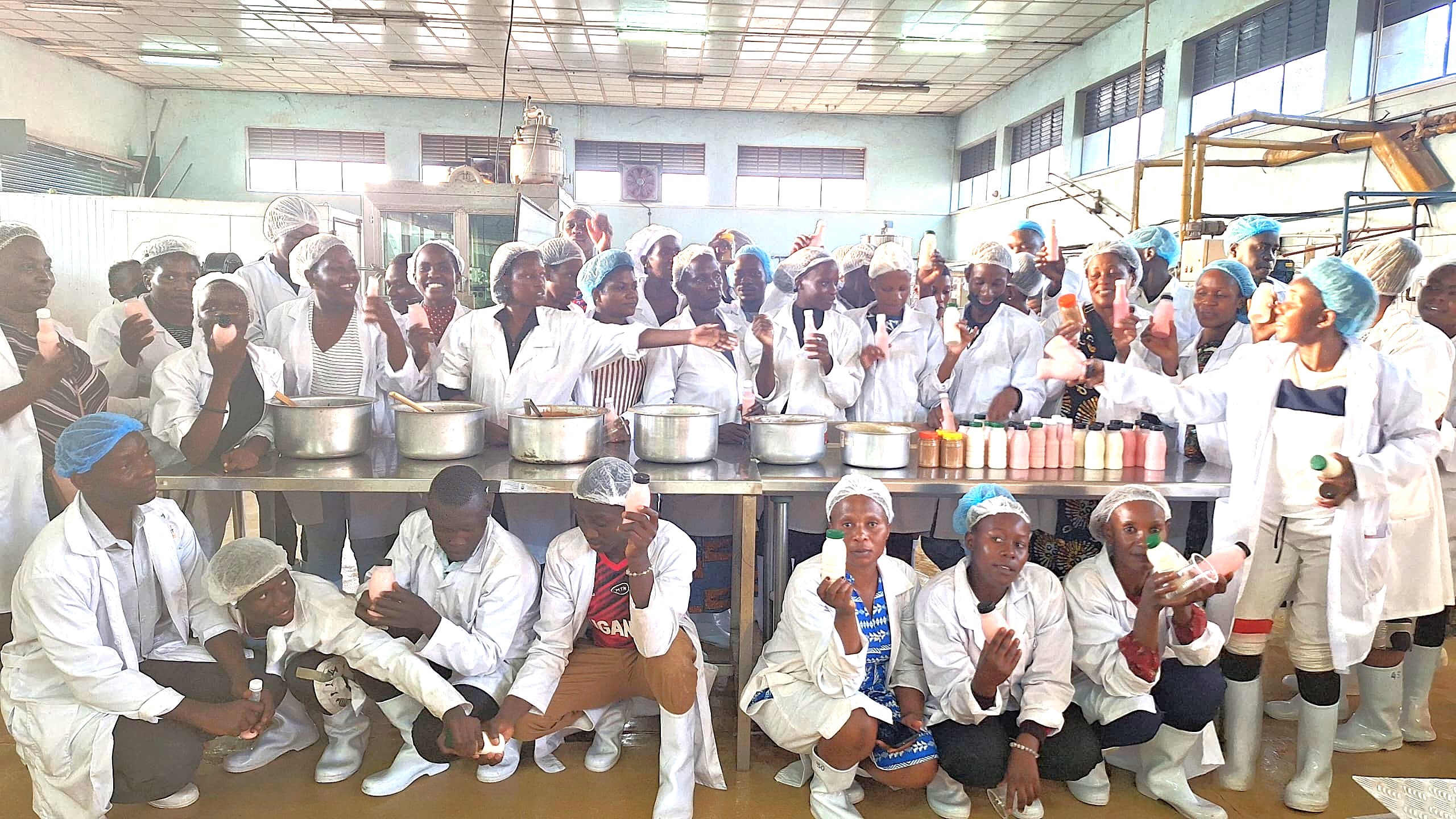
Trending
-

 General2 weeks ago
General2 weeks agoCall for Applications: Admission to Postgraduate Programmes 2026/2027
-

 Natural Sciences2 weeks ago
Natural Sciences2 weeks agoSimon Mungudit: Mak’s Best Performing Male Science Student & Rising Star in Petroleum Geoscience
-

 Agriculture & Environment1 week ago
Agriculture & Environment1 week agoFrom Adversity to Excellence: The Inspiring Journey of Makerere’s Best Science Student, Esther Ziribaggwa
-

 General6 days ago
General6 days agoAptitude Exam (Paper 1) Results for the Mature Age Entry Scheme 2026/2027
-

 Health2 weeks ago
Health2 weeks agoEU Earmarks Shs19.8bn for 15 Joint PhD Scholarships in Health, Environment Research
